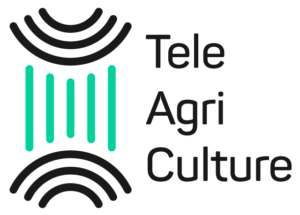Post-Malarial Permacultures 2021-Present
An innovative, safe and natural approach to mosquito control for your home and office.
Collaboration with Shareenah Rahmen
Using the technology of the Teleagriculture platform and all natural ingredients we have designed a mosquito repellent and killer that is easy to set up beside any large window or entry way for these disease-carrying-blood-sucking organisms. All natural biological control with technology that does not only prevent mosquitoes but also protect us and our loved ones from dust and pollution.
Mosquitoes, though very small in size, yet are one of the most dangerous insects in the world for humanity. They must feed on blood throughout their adult life, thus making them the ideal transmitters of many pathogens. Different species and sex of mosquitoes are responsible for various life threatening diseases. According to World Health Organization, mosquito bites result in the deaths of more than one million people every year.
Mosquito vectored diseases include protozoan diseases such as malaria (The World Health Organization estimates that between 300 and 500 million cases of malaria that occur each year, a child dies from malaria every 30 seconds) and viral diseases such as dengue, Zika. Some of the most disease causing species are female anopheles (causing malaria), Aedes aegyti (causing viral diseases such as dengue fever, yellow fever, chinkungunya, West Nile fever and many other encephalitic diseases) and Aedes albopictis (causing the Zika fever and pregnant women giving birth to babies having underdeveloped brains).
There are many mosquito insecticides and sprays available. Not all of them are good for human, animals and the environment. Mosquitoes are evolving to beat insecticides. They are evolving to grow resistant to most of the existing insecticides. A single genetic mutation causes resistance to DDT and pyrethroids (an insecticide class used in mosquito nets) according to a new research in the journal Genome Biology.
Our design includes hydroponics, aeroponics and aquaponics which are planted in reused bottles containing lava clay balls that absorb water for the use of plants and prevents any microorganisms from building up. The plants grown include natural mosquito repellents such as citronella, lemongrass, basil, rosemary, lavender and even pretty flowers like marigold. The aquarium contains biological control such as mosquitofish (Gambusia affinis), guppies and goldfish; they eat mosquitoes and mosquito larvae. The water stays fresh and in motion with a pump and an oxygen supplier; this water is pumped up to water the plants. To save energy, a solar panel can be attached on the outer side of the window to harness solar energy to run the whole system. Biodegradable jute strings hold most of the items in place. To talk about the use of Teleagriculture Kit®, which is in multi-step and like always for the betterment of humanity. Sound and frequency detector calibrates with the frequency of the mosquitoes and other insects to send a notification to you to close the window or spray the natural mister. The natural mister or spray is also automated, which you can spray with just a tap on your cell phone. The mist sprayer contains essential oils which repel off mosquitoes. The pollution and dust sensor sends information to mobile regarding the level of air pollution (Air Quality Scale/Index, AQI), so that you can close the windows, making it perfect for a child’s room.
Due to a number of unfortunate reasons, this project has had several prototyped solutions but nothing to date has been implemented at scale to conduct reasonable viability testing. Now, in 2023 we are happy to say that we now have resolved the technical barriers for a low cost solar solution and will be moving forward with this project in late summer!

